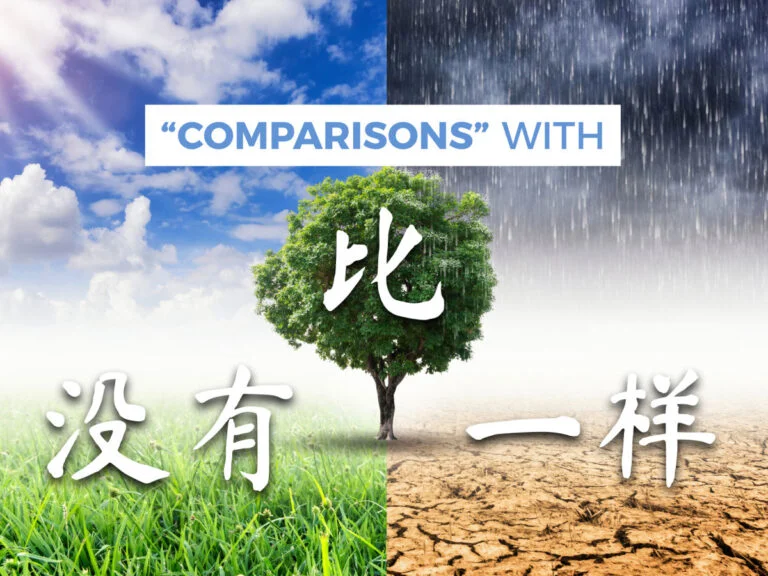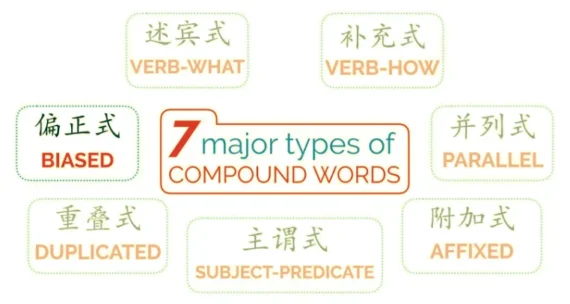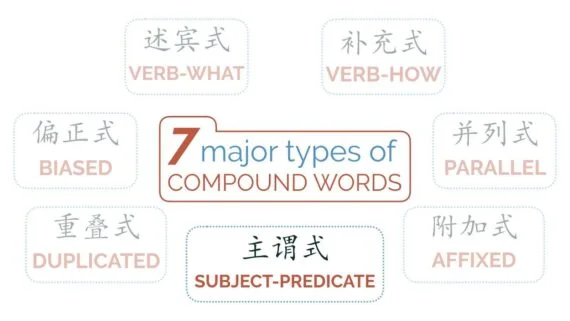Comparisons in Chinese – A Comprehensive Guide

比, 没有, 一样 – Bǐ, méiyǒu, yīyàng
This article is a comprehensive guide for how to make simple comparisons in Mandarin Chinese. Even if you don’t know any Mandarin, you should be able to follow this post.
Who or What are We Comparing?
Here’s are two simple rules for making comparisons in Mandarin Chinese:
- Establish who, what or where you’re comparing at the beginning of the sentence
- Put the comparison at the end of the sentence.
Sure, that’s a little simplistic, but it applies surprisingly well.
Because we want this article to focus on the structure of comparisons, we’ll keep the “who” or “what” limited to either pronouns or ‘this’ & ‘that’:
他 tā – he
她 tā – she
它 tā – it
这个 zhèige – this
那个 nèige – that
The Most Basic Comparison
What’s the lowest level comparison you can make between two things? “Is this THE SAME as that?” Not is it ‘better’ or ‘bigger,’ just ‘the same’ or ‘not the same.’ It doesn’t get much simpler than that! How do you express these comparisons in Chinese?
First, we’ll need a few more vocabulary words:
和 hé – 跟 gēn – 与 yǔ
In the context of these ‘same or not the same’ comparisons, all three of these mean ‘and,’ and all they are virtually the same except that “与” is more formal.
一样 yíyàng – ‘the same’ (literally ‘one 一’ + ‘appearance 样’)
不一样 bù yíyàng – ‘not the same.’
(Note: If you’d like to know more about the character 样, check out our article “The Power of Chinese Characters 样“)
Comparison Time!

这个和那个一样。This and that are the same.
他跟她不一样。He and she aren’t the same.
它与那个不一样。That’s not the same as it.
Simple, right? Just establish the two things you are comparing and say “same” or “not the same”:
Object 1 + 和/跟/与 + Object 2 + 一样/不一样
How to Make More Substantive Comparisons in Chinese
What if you want to say something more specific like “This is better than that” or “She is smarter than him”? You’ll need some tools over and above “一样 “& “不一样.”
For the next exercise, you’ll need to use one of these two words to show comparison.
比 bǐ
没有 méiyǒu
Quality Comparisons
好 hǎo – good
差 chà – poor
We’ll use 好 & 差 to make comparisons of quality (don’t worry if you don’t fully understand them yet):
这个比那个好。
那个比这个差。
这个没有那个差。
那个没有这个好。
Believe it or not, these four sentences are all saying the same thing. All that’s different is the phrasing. They all mean, “This is better than that.” Here’s how it works:
Object 1 + 比 + Object 2 + Description
When you use 比 bǐ, the first object is MORE OF the description than Object 2.
这个 + 比 + 那个 + 好 —> 这个 has more 好 than 那个 —> This is better than that.
那个 + 比 + 这个 + 差 —> 那个 has more 差 than 这个 —> That is poorer (quality) than this.
Object 1 + 没有 + Object 2 + Description
When you use 没有 méiyǒu, the first object is LESS OF the description than Object 2.
这个 + 没有 + 那个 + 差 —> 这个 has less 差 than 那个 —> This isn’t as poor as that.
那个 + 没有 + 这个 + 好 —> 那个 has less 好 than 这个 —> That isn’t as good as this.
With this in mind, let’s expand our possible comparisons in Chinese:
Height Comparisons
高 gāo – tall
矮 ǎi – short (in height)
她比他矮。She is shorter than him.
他比她高。He is taller than her.
她没有他高。She’s not as tall as him.
他没有她矮。 He’s not as short as her.
Length Comparisons
长 cháng – long
短 duǎn – short (in length)
这个比那个短。This is shorter than that.
那个比这个长。That is longer than this.
这个没有那个长。This is not as long as that.
那个没有这个短。That is not as short as this.
Width Comparisons
宽 kuān – wide
窄 zhǎi – narrow
这个比那个宽。This is wider than that.
那个比这个窄。That is more narrow than this.
这个没有那个窄。This is not as narrow as that.
那个没有这个宽。That is not as wide as this.
Depth Comparisons
深 shēn – deep
浅 qiǎn – shallow
这个比那个深。This is deeper than that.
那个比这个浅。That is shallower than this.
这个没有那个浅。This is not as shallow as that.
那个没有这个深。That is not as deep as this.
Thickness Comparisons
厚 hòu – thick
薄 báo – thin
这个比那个厚。This is thicker than that.
那个比这个薄。That is thinner than this.
这个没有那个薄。This is not as thin as that.
那个没有这个厚。That is not as thick as this.
Cylindrical Thickness Comparisons (Tubes, French Fries, straws, etc.)
粗 cū – thick (of cylindrical objects)
细 xì – thin (of cylindrical objects)
这个比那个粗。This is thicker than that.
那个比这个细。That is thinner than this.
这个没有那个细。This is not as thin as that.
那个没有这个粗。That is not as thick as this.
Weight Comparisons (Objects)
重 zhòng – heavy
轻 qīng – light
这个比那个重。This is heavier than that.
那个比这个轻。That is lighter than this.
这个没有那个轻。This is not as light as that.
那个没有这个重。That is not as heavy as this.
Comparing Human Weight/Size
Note: In China, there is far less of a social taboo around directly calling someone “fat.” They feel the same way about it as saying someone is “tall” or “has brown eyes.”
胖 pàng – fat
瘦 shòu – skinny
他比她胖。He is fatter than her.
她比他瘦。She is skinnier than him.
他没有她瘦。He is not as skinny as her.
她没有他胖。She is not as fat as him.
Comparing Intelligence
笨 bèn – dumb
聪明 cōngming – smart
他比她笨。He is dumber than her.
她比他聪明。She is smarter than him.
他没有她聪明。He is not as smart as her.
她没有他笨。She is not as dumb as him.
Comparing Age (People)
大 dà – big (older)
小 xiǎo – small (younger)
In Chinese, you can directly describe a person as “old” or “young” by using ‘老 lǎo’ and ‘年轻 niánqīng’ respectively. For example:
他很老。tā hěn lǎo – He is old.
她很年轻。tā hěn niánqīng – She is young.
However, when making age *comparisons*, you use “大” (older) and “小” (younger) instead.
他比她大。He is older than her.
她比他小。She is younger than him.
他没有她小。He is not as young as her.
她没有他大。She is not as old as him.
You can still use 大 & 小 to compare the size of objects (e.g., 这个比那个大 ‘this is bigger than that’), but when comparing humans, 大 & 小 are referring to age differential.
———————
CHECKPOINT:
How to Increase (or Decrease) the DEGREE of the Comparison

Until now, our comparisons in Chinese aren’t commenting on the degree to which the two subjects are different. For example, 她比他聪明 doesn’t tell you how much smarter she is. As we move forward, there are a few more words we’ll add so that you can make your comparisons even more specific:
得多 de duō – by a lot
多了 duō le – by a lot (same as 得多)
一点儿 yìdiānr – a bit, a little
一些 yìxiē – a bit, a little (same as 一点儿)
———————
Speed Comparison
From here on, we’ll start to express “by how much” in sentences that contain 比. Note: The 没有 structures stand alone and don’t use the vocab mentioned above.
快 kuài – fast
慢 màn – slow
他比她快得多。He is a lot faster than her.
她比他慢多了。She is a lot slower than him.
他没有她慢。He is not as slow as her.
她没有他快。She is not as fast as him.
Strength Comparison
强 qiáng – strong (alternate: 壮 zhuàng)
弱 ruò – weak
他比她强一点儿。He is a bit stronger than her.
她比他弱一些。She is a bit weaker than him.
他没有她弱。He is not as weak as her.
她没有他强。She is not as strong as him.
Distance Comparison
远 yuǎn – far away
近 jìn – close
他比她远多了。He is a lot farther away than her.
她比他近得多。She is a lot closer than him.
他没有她近。He is not as close as her.
她没有他远。She is not as far away as him.
Age Comparisons (Objects)
新 xīn – new
旧 jiù – old
这个比那个新一点儿。This is a bit newer than that.
那个比这个旧一些。That is a bit older than this.
这个没有那个旧。This is not as old as that.
那个没有这个新。That is not as new as this.
Quantity Comparisons
多 duō – many, much
少 shǎo – few, less
For this example, we’ll introduce ‘these’ and ‘those’:
这些 zhèxiē – these
那些 nàxiē – those
这些比那些多多了。There are a lot more of these than those.
那些比这些少得多。There are a lot fewer of those than these.
这些没有那些少。These are not as few as those.
那些没有这些多。Those are not as many as these.
Hardness Comparisons
软 ruǎn – soft
硬 yìng – hard
这个比那个软一些。This is a bit softer than that.
那个比这个硬一点儿。That is a bit harder than this.
这个没有那个硬。This is not as hard as that.
那个没有这个软。That is not as soft as this.
Temperature Comparisons
热 rè – hot
冷 lěng – cold
这个比那个热多了。This is a lot hotter than that.
那个比这个冷得多。That is a lot colder than this.
这个没有那个冷。This is not as cold as that.
那个没有这个热。That is not as hot as this.
Cleanliness Comparison
干净 gānjìng – clean
脏 zāng – dirty (alternate: 乱 luàn – ‘a mess’)
这个比那个干净一点儿。This is a bit cleaner than that.
那个比这个脏一些。That is a bit dirtier than this.
这个没有那个脏。This is not as dirty as that.
那个没有这个干净。That is not as clean as this.
Wetness Comparison
湿 shī – wet
干 gān – dry
这个比那个湿得多。This is a lot wetter than that.
那个比这个干多了。That is a lot dryer than this.
这个没有那个干。This is not as dry as that.
那个没有这个湿。That is not as wet as this.
Monetary Value Comparisons
贵 guì – expensive
便宜 piányì – cheap
这个比那个贵一些。This is a bit more expensive than that.
那个比这个便宜一点儿。That is a bit cheaper than this.
这个没有那个便宜。This is not as cheap as that.
那个没有这个贵。That is not as expensive as this.
Difficulty Comparisons
难 nán – difficult
容易 róngyì – easy
这个比那个难多了。This is a lot more difficult than that.
那个比这个容易得多。That is a lot easier than this.
这个没有那个容易。This is not as easy as that.
那个没有这个难。That is not as difficult as this.
Safety Comparisons
安全 ānquán – safe
危险 wēixiǎn – dangerous
这个比那个安全一点儿。This is a bit safer than that.
那个比这个危险一些。That is a bit more dangerous than this.
这个没有那个危险。This is not as dangerous as that.
那个没有这个安全。That is not as safe as this.
Tightness Comparisons
紧 jǐn – tight
松 sōng – loose
这个比那个紧得多。This is a lot tighter than that.
那个比这个松多了。That is a lot looser than this.
这个没有那个松。This is not as loose as that.
那个没有这个紧。That is not as tight as this.
Beauty Comparisons
丑 chǒu – ugly
漂亮 piàoliang – beautiful
他比她丑一些。He is a bit uglier than her.
她比他漂亮一点儿。She is a bit more beautiful than him.
他没有她漂亮。He is not as beautiful as her.
她没有他丑。She is not as ugly as him.
Bravery Comparisons
胆小 dǎnxiǎo – cowardly
勇敢 yǒnggǎn – brave
他比她胆小多了。He is a lot more cowardly than her.
她比他勇敢得多。She is a lot braver than him.
他没有她勇敢。He is not as brave as her.
她没有他胆小。She is not as cowardly as him.
Rarity Comparisons
常见 chángjiàn – common
罕见 hǎnjiàn – rare
这个比那个常见一点儿。This is a bit more common than that.
那个比这个罕见一些。That is a bit rarer than this.
这个没有那个罕见。This is not as rare as that.
那个没有这个常见。That is not as common as this.
Laziness Comparisons
懒 lǎn – lazy
勤奋 qínfèn – industrious
他比她懒得多。He is a lot lazier than her.
她比他勤奋多了。She is a lot more industrious than him.
他没有她勤奋。He is not as industrious as her.
她没有他懒。She is not as lazy as him.
We Bet You’re AWESOME at Mandarin Chinese Comparisons Now!
You just got a LOAD of comprehensible input by reading these sentences, and that’s the proper way to acquire language. Sure, knowing the grammar rules can give you a boost, but it’s way more important to see high volumes of sentences that demonstrate the rule. Luckily, you’ve already done so! Not to mention, you exposed yourself to quite a few useful Chinese antonyms ;).
If you want to get more comprehensible input and an extraordinarily solid Mandarin Chinese foundation, check out a free trial of The Mandarin Blueprint Method course.








